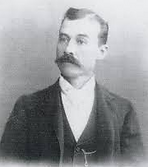Strive not, Leuconoë, to know what end
The gods above to me or thee will send;
Nor with astrologers consult at all,
That thou mayst better know what can befall;
Whether thou liv’st more winters, or thy last
Be this, which Tyrrhene waves ’against rocks do cast.
Be wise! drink free, and in so short a space
Do not protracted hopes of life embrace,
Whilst we are talking, envious time doth slide:
This day’s thine own; the next may be denied.
Analysis
The first line of the poem is “Strive not, Leuconoë, to know what end.” I think that this line means “do not worry about things coming to an end.”The second line in the poem is “The gods above to me or thee will send.” I think that this line means that, in conjunction to the above line, that you never know what might come in life. Together I beleive that these two lines mean that it is best not to waste your time trying to figure out your fate. The third line in the poem and the fourth line in the poem for a continuing sentence, which is: “Nor with astrologers consult at all, that thou mayst better know what can befall.” I think that these lines mean that there is no doubt about what will happen. Everybody can predict their future at least somewhat accurately. The fourth line in the poem is “Whether thou liv’st more winters, or thy last.” I think that this line means disputes whether or not someone will live or die, thus living many more winters if they are alive, or living their last winter if they are soon to die.The fourth line of the poem is: “Be this, which Tyrrhene waves ’against rocks do cast.” I think that this line means, along with the above line, that no matter what stage of life you are in, many things will never change, including the movement of waves in the sea. The fifth and sixth lines in the poem are: “Be wise! drink free, and in so short a space do not protracted hopes of life embrace.” I think that this line means that you should be wise, happy and free, and embrace all life events both big and small because your life is short. The seventh line of the poem is: “Whilst we are talking, envious time doth slide.” This line means that friendship, happiness and sociality can help you forget the bad experiences of the past and live a happier life. The final line in the poem is: “This day’s thine own; the next may be denied.” I think that this means that you can do whatever you want during the day, and live in the moment because tomorrow might not exist at all. In other words, this line means Carpe Diem.
Figurative Language:
Personification: "Whilst we are talking, envious time doth slide."
In this poem, this example of personification is being used to encourage readers to use thier time better, and to show them that time is always passing. This is an example of personification because time is being given the human-like quality of sliding.
Tone:
In this poem, the tone is positive and encouraging. I beleive this to be true because many quotes in the text relfect and relate to this theme. These quotes include: "Strive not Leuconoë, to know what end the gods above to me or thee will send," "That thou mayst better know what can befall," "Whether thou liv'st more winters or thy last," Be wise, drink free," "Do not protracted hope of life embrace, whlist we are talking envious time doth slide" and "This day's thine own, the next may be denied."
Mood:
In this poem, the mood is encouraged, and the poem provides a positive outlook on life. I beleive that this is true because when I first read this poem, those I felt encouraged and had a stronger positive outlook on life. Also, there are many quotes in the text that prove my claim, including: "Strive not Leuconoë, to know what end the gods above to me or thee will send," "That thou mayst better know what can befall," "Whether thou liv'st more winters or thy last," Be wise, drink free," "Do not protracted hope of life embrace, whlist we are talking envious time doth slide" and "This day's thine own, the next may be denied."
Ode 11 from the First Book of the Odes of Horace
by Sir Thomas Hawkins

Sir Thomas Hawkins (1574 - 1640)

Poetic Perfection
Created by: Brynn Siles
Teacher: Klaudia Neufeld
Class: 7GT English
Date: 23 November , 2014
School: Hulstrom K-8 School